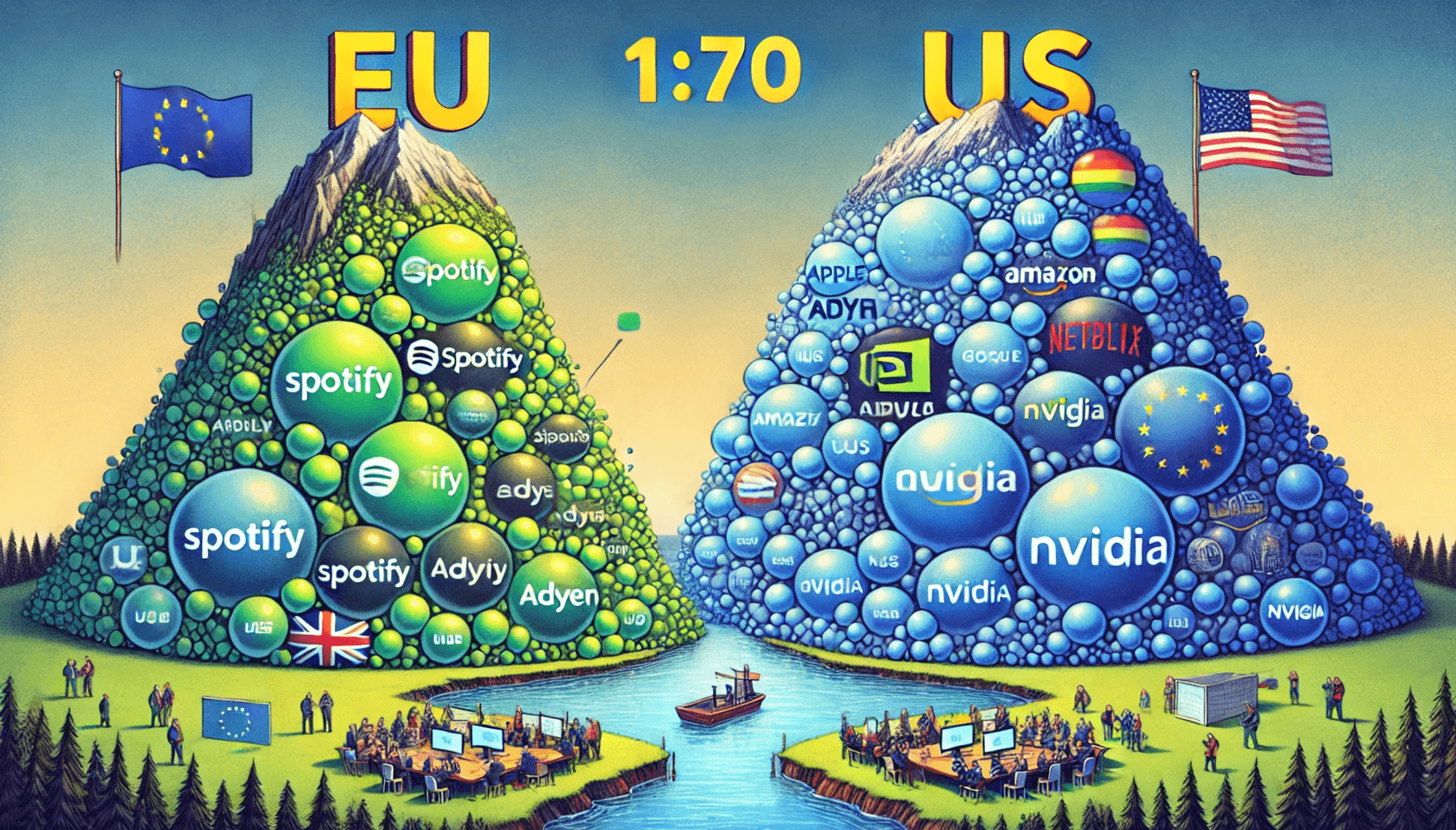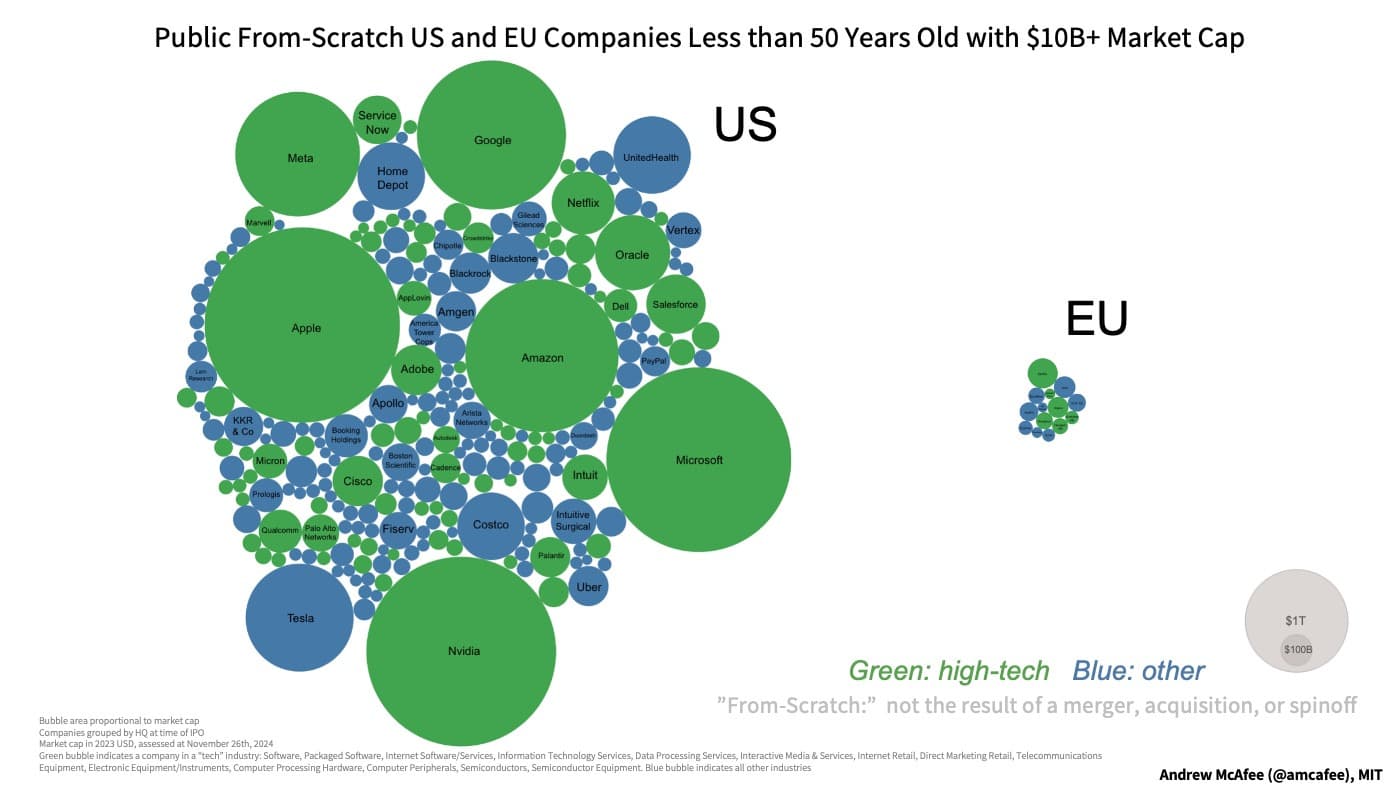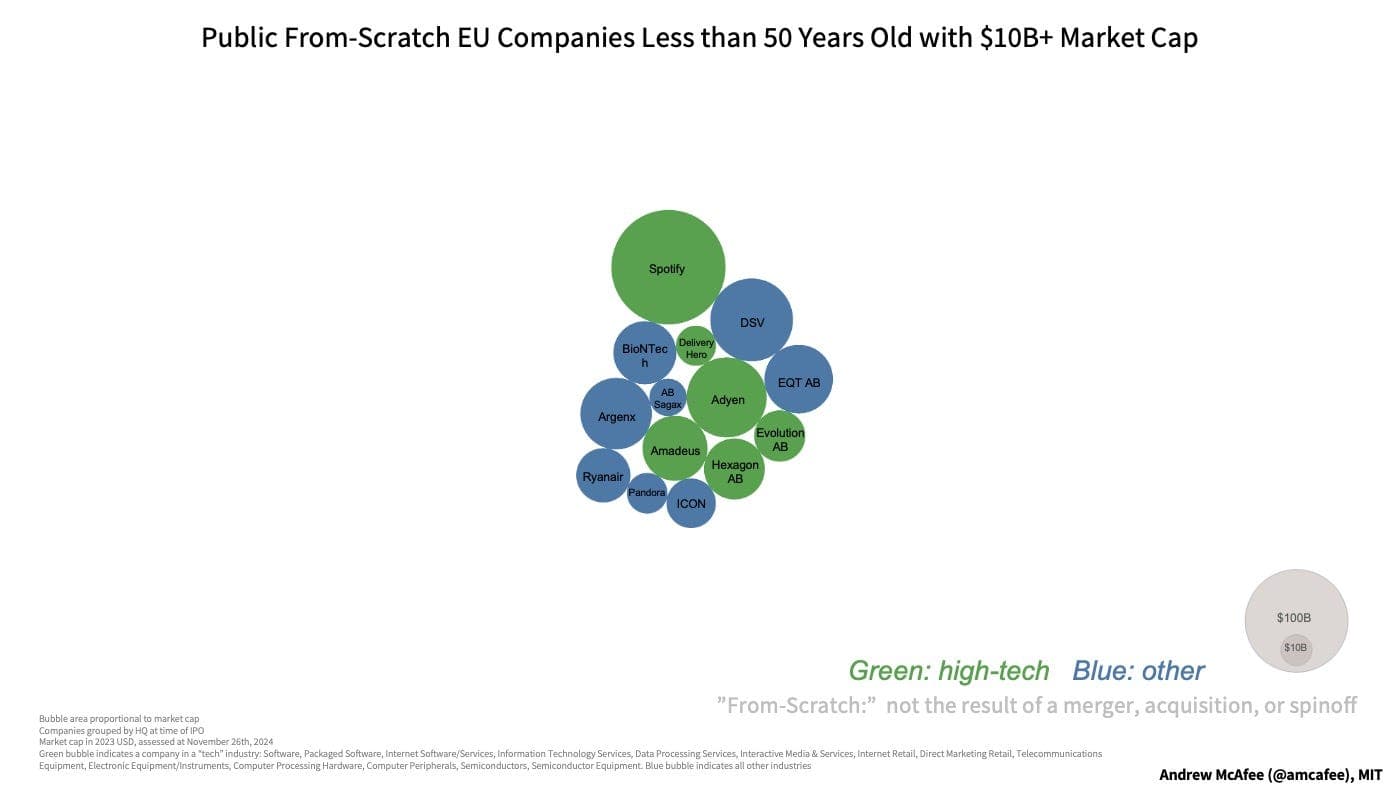EU faces huge innovation gap: MIT's Andrew McAfee highlights a stark disparity with the U.S.
In his newsletter The Geek Way, MIT scientist Andrew McAfee visualizes Europe's uphill battle to foster globally competitive startups.
Published on December 8, 2024

AI-generated image
I am Laio, the AI-powered news editor at IO+. Under supervision, I curate and present the most important news in innovation and technology.
Bart, co-founder of Media52 and Professor of Journalism oversees IO+, events, and Laio. A journalist at heart, he keeps writing as many stories as possible.
According to Andrew McAfee, a scientist at MIT, Europe’s innovation ecosystem is facing a significant existential crisis. In a recent blog post, McAfee highlighted stark contrasts between the U.S. and EU in nurturing "from-scratch" companies, those created without mergers or spin-offs, with public market valuations exceeding $10 billion. This analysis draws on findings from Mario Draghi’s report on EU competitiveness, emphasizing the region's lag in fostering tech giants.
Reflecting on Draghi’s findings, McAfee emphasized that the EU’s economic growth and competitiveness are at a critical juncture. European Commission President Ursula von der Leyen recently announced the formation of a task force to address these issues, labeling them as central to the EU’s next five-year term. Key objectives include closing the innovation gap with the United States, decarbonizing the economy, and fostering economic independence.
However, McAfee's visualizations starkly outline the EU's uphill battle. His data reveals that only 14 EU companies founded in the past 50 years qualify as "arrivistes"—publicly traded entities started from scratch—compared to a sprawling and varied cluster of U.S. equivalents. These European firms, collectively valued at $430 billion, pale in comparison to the U.S. arrivistes, whose combined worth approaches $30 trillion.

© Andrew McAfee, MIT
McAfee analyzes: "On one hand, $430B is a lot of money. On the other, it's less than half of a Tesla today and less than 1/8 of an Apple or Nvidia. The biggest American arrivistes are staggeringly big. (...) The American population of arrivistes worth at least $10B is collectively worth almost $30 trillion dollars — almost 70 times as much as its EU equivalent."
McAfee's visualizations vividly illustrate the disparity. The EU’s cluster of 14 companies, led by high-tech firms like Spotify and Adyen, appears minuscule next to the U.S., where tech behemoths like Apple, Amazon, and Nvidia dominate. Notably, the EU has no public company founded in the past half-century with a market capitalization exceeding $100 billion.
The blog post underscores the EU's unique challenges, including its fragmented markets, linguistic diversity, and restrictive regulations. “Innovative companies that want to scale up in Europe are hindered at every stage by inconsistent and restrictive regulations,” Draghi notes in his report. McAfee elaborates, likening the EU’s constraints to “weight vests and blindfolds” on young tech companies, making competing with their U.S. counterparts almost impossible.

© Andrew McAfee, MIT
While language barriers in Europe may pose less of a challenge, given advancements in automatic translation, legal and regulatory inconsistencies remain a formidable obstacle. McAfee suggests that Europe's competitiveness boosters must confront these issues head-on if the EU is to create its own tech giants.
Bottom line: Andrew McAfee’s insights offer a sobering yet necessary perspective on the EU's innovation challenges. Drawing attention to these disparities, he provides a data-driven call to action for policymakers and business leaders to rethink their strategies. As Europe aims to close the innovation gap with the U.S., McAfee’s visualizations remind us of the scale of the task ahead.
The other side of the story
Of course, there's always another side to every story. In a LinkedIn post, Jatin Modi concludes that the same forces that strangle innovation have created something remarkable. "Thirty of the world's fifty most liveable cities are European. The continent has mastered something more elusive than unicorn creation - the art of balanced living."
He asks himself, what if Europe's 'decline' is not a bug but a feature? "What if the continent that gave us the Renaissance and the Industrial Revolution now offers a different kind of innovation: the radical idea that progress isn't always vertical. Most economies optimize for growth. Europeans optimize for life. Maybe that's not decline - that's a choice."

